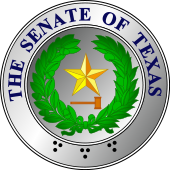Texas businesses warn of 'Indiana-like backlash' if state introduces similar religious freedom law

An association of businesses in the state of Texas warns of a backlash similar to Indiana if the state passes two religious freedom laws.
According to the Texas Business Tribune, the Texas Association of Business issued a statement through its Chief Executive Officer, Bill Hammond, denouncing two bills authored by two Republicans, namely HJR 125 by Texas Rep. Matt Krause and SJR 10 by Texas Sen. Donna Campbell.
Krause's HJR 125 bill would prevent government or even homeowners from putting pressure on a person's "free exercise of religion." Campbell's SJR 10 bill seeks to explicitly bar the government from violating a person's or a business's freedom of religion.
The two bills are similar in tone to the Religious Freedom Restoration Act that Indiana Governor Mike Pence signed into law on March 27. After facing significant backlash from human rights groups as well as corporations that threatened to withdraw investment in the state, Gov. Pence signed a "revised" version of the Act stating that businesses are prohibited from denying services to people on grounds of sexual orientation and gender identity.
"These amendments are bad for business," Hammond told members of the press on Tuesday.
"They would devastate economic development, tourism and the convention business," he said.
Democrat Rep. Rafael Anchia claimed the two bills were "licence to discriminate against the LGBT community," and said that many Fortune 100 companies in his district protect LGBT rights.
The passage of these bills would make these businesses think twice about basing their operations in Texas, the congressman claimed.
"(W)e already have a religious freedom law on the books and it's working perfectly," Anchia told KVUE, referring to the law passed in 1999 designed to protect a person's "free exercise of religion."
Krause agreed that the 1999 religious freedom statute is working, and stated that he authored HJR 125 to elevate the statute into the State's constitution. This, he said, would "(elevate) it (to) a level of importance."











